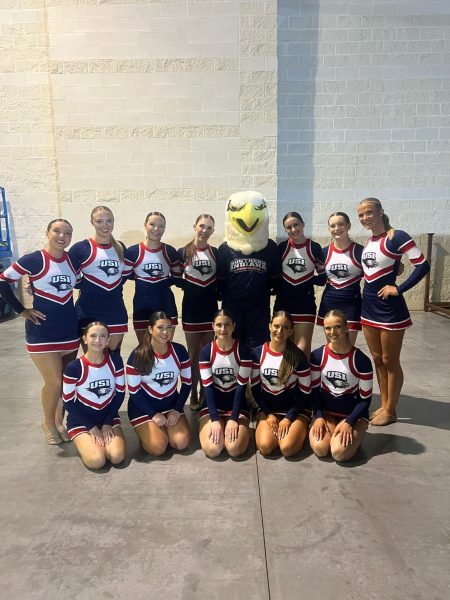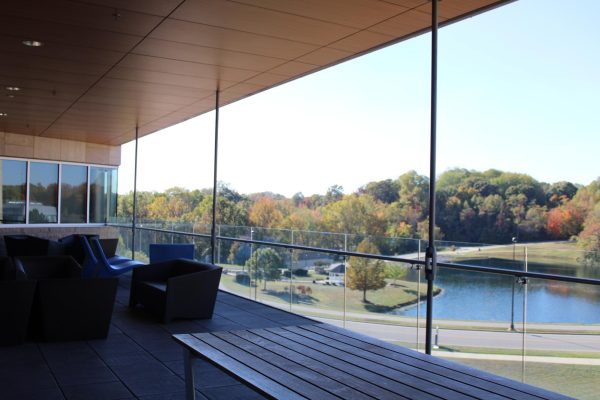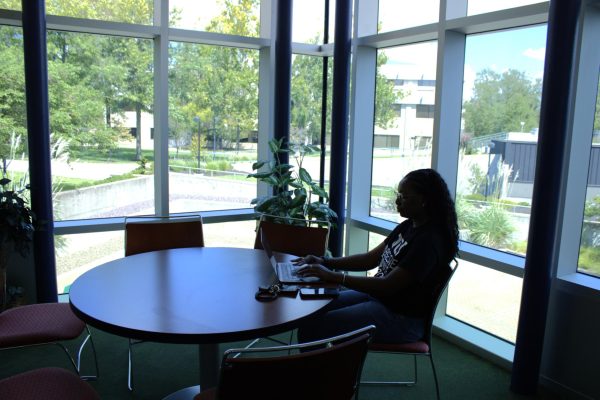Help the cats, don’t ignore them
The campus might refuse to provide care for its famous felines, but the students certainly don’t.
All around the apartment buildings of the university, anyone can see the numerous types of bowls and cans of food and water set outside of front doors or against the brick walls. If one simply walks the perimeters of the apartments, they will see students calling out to cats or even petting the bolder and friendlier ones of the bunch.
The cats are a part of campus life. They live here and thus should be considered members of the USI community, no matter how wild or feral they may be. Animals don’t have to be pets in order to be deemed important or of value.
However, since a passionate student’s attempts to help the feral felines after finding two frozen cats outside her apartment one winter day was dismissed by the university four years ago, nothing has really been done to help the animals or to assist in providing shelter and food.
The cats are still going hungry and meowing outside students’ doors in hope of being fed, kittens are still being born, and there is no absolute shelter to go to when the weather grows frigid.
The proposal of trapping, neutering and then releasing would greatly impact the cat situation.
If the university could work with animal control and animal support groups to help trap the cats to fix them and then have them released back onto campus, not only would the issue of recurring pregnancy among the female cats be solved, but the overall health of the cats would improve as well.
No longer will the tomcats have to fight and wound each other over females. The cats would all be spayed and neutered, thus preventing new litters of kittens and fewer injuries.
Also, if the cats were simply released back on campus after being fixed, it would prevent new cats from moving into the area. The cats could stay in their homes and with other cats that have become their companions.
The idea of euthanization should also be tossed out without question. These cats live and prosper here just as much as humans do. They deserve to be here just as much. They’re not hurting anyone.
They’re just trying to live amongst humans. It would be cruel to consider killing them or getting rid of them when they’re harmless animals who bring nothing but smiles to the faces of residents of USI.
As for the situation of the cats going hungry and having no shelter, perhaps a system or funding could be setup on campus to pay for food supplies and for shelters to be built.
No matter what the rules are or what rules are placed, the students are going to keep feeding the cats. No one else is going to do it, and how many birds and mice are around, easily accessible for the cats to hunt when students are walking around all the time scaring the prey away?
If some sort of small, hollow structures were placed around the areas of the apartments where the most cats were spotted, at least it would assist in giving the kitties places to go during storms or to hide from the harsh winds of winter.
And if feeding stations were set up at those little shelters, and someone went around once or even twice a day to fill the feeding stations, that would help solve the issue of the cats going hungry and having to beg for food at students’ doors.
Of course, there will probably be other animals in the area that will help themselves to those feeding stations, but if there is a constant time in which the feeding stations are visited to fill, then the cats will catch on and arrive shortly after the time the stations are filled to eat. If other species of animals help themselves, well, then that’s just nature being nature.
The lives of the cats matter very much, especially to the students living in the areas where the cats dwell. USI is as much as the cats’ home as it is the students’.
The last attempt to help the cats was shut down when brought up to the president of the university in 2014, but now there is a different president on the scene. Perhaps it is time to really help our feline friends and fight once more for their well-beings.










